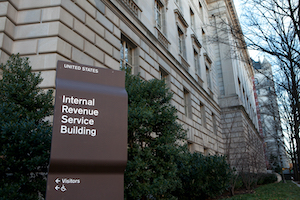On Feb. 20, the American Retirement Association (ARA) sent a letter to the Internal Revenue Service (IRS) that addressed technical issues affecting certain SECURE 2.0 provisions. It noted a few that are of particular relevance to retirement plan sponsors and advisors. 
More specifically, the ARA recommended that the IRS reconsider its position on “de minimis” financial incentives to encourage enrollment and participation in company-sponsored plans. The letter asked that the IRS:
- Permit de minimis financial incentives to be offered to all employees who make deferral elections, regardless of whether they already have a deferral election.
- Provide that the $250 limit on de minimis financial incentives be increased in subsequent years to reflect cost-of-living increases.
The letter noted that Section 113 of SECURE 2.0 permits a 401(k) or 403(b) plan sponsor to offer financial incentives to employees who elect to have the employer make contributions instead of receiving cash. Yet, the IRS notice says that a financial incentive may only be offered to an employee who does not make a deferral.
It’s something that’s far too restrictive, the ARA argued, and unfair to participants currently making salary deferrals in a plan.
“Section 113(a) of SECURE 2.0 permits de minimis financial incentives to be ‘provided to employees who elect to have the employer make contributions under the arrangement in lieu of receiving cash,’” the letter read. “It does not say to employees who first elect to have the employer make contributions under the arrangement. An election to continue making deferrals or to increase deferrals is clearly an election ‘to have the employer make contributions under the arrangement.’”
The IRS interpretation means that auto-enrolled employees will not be able to receive any incentive to continue making deferrals or elect to make a deferral higher than the auto-enrolled percentage, the letter added. Particularly in light of the SECURE 2.0 requirement that new plans use auto-enrollment, this would exclude a large percentage of American workers for whom this provision was meant to benefit.
“We think de minimis financial incentives are a valuable resource to increase coverage and improve participant outcomes,” Kelsey Mayo, ARA’s Director of Regulatory Policy, explained. “The IRS took an unnecessarily limited view of the participants to whom the financial incentives can be given. The incentive was intended to drive participation and engagement in 401(k) plans very broadly, and we’re asking that they follow through on that original intent by revising their narrow interpretation.”
A copy of the letter can be FOUND HERE.
- Log in to post comments
